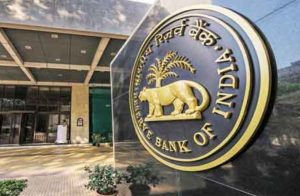 In the end, both the Reserve Bank of India and the government have realized that escalation of the confrontation would do no good to any side. The crucial meeting of the RBI Board held on November 21 clearly showed that the government and the RBI have called it a truce, though it may be temporary armistice and chose to tread a middle path, buying time and space to end stubbornness. It would be difficult to point out who is the winner because both sides appeared retrieving a step in their known stands. Indeed the meeting passed off sans brickbats and the RBI issued a succinct statement at the end of the nine-hour-long marathon meeting.
In the end, both the Reserve Bank of India and the government have realized that escalation of the confrontation would do no good to any side. The crucial meeting of the RBI Board held on November 21 clearly showed that the government and the RBI have called it a truce, though it may be temporary armistice and chose to tread a middle path, buying time and space to end stubbornness. It would be difficult to point out who is the winner because both sides appeared retrieving a step in their known stands. Indeed the meeting passed off sans brickbats and the RBI issued a succinct statement at the end of the nine-hour-long marathon meeting.
However, one can draw a safe conclusion that the Reserve Bank of India’s Board would emerge all-powerful in near future. Now the external directors numbering 13, including two government nominees would be able to exert more influence over the working of the RBI. At the meeting, the decisions taken by the Board addressed the concerns of both the Centre and the RBI.
The Apex bank has agreed to set up a committee to examine relaxation of the Prompt Corrective Action framework of 11 public sector banks and provision of liquidity for non-banking finance companies. The Centre and the RBI will jointly decide the formation and terms of reference of the committee. The RBI also gave in on the issue of the Basel capital framework for banks and easing credit flow to micro, small and medium enterprises. By allowing debt recast for MSME borrowers of up to 25 crore, the RBI has attempted to address their credit concerns, which was one of the major demands of the Centre, which was desperate after the crunch hit the NBFCs. Surely, the government had a valid point.
However, when the term of a democratically elected government is at its fag ends, it must wait patiently wait for a fresh mandate before taking major decisions. Ideally, the government should not touch the reserves without either amending the RBI Act or convincing the Parliament about its intent. It is on these lines, that post meeting, the Finance Minister made it known that India does not need money from the RBI in the next six months. It is a rebuttal to opposition charges that the government was seeking access to the RBI’s reserves to fund schemes ahead of the 2019 general election. Insiders say there was enough give-and-take in the meeting but it was the RBI Board for the first time in recent memory that appeared more than an ornamental advisory body. Indeed the Centre gave a clear message as to who is the winner and who is the boss?












